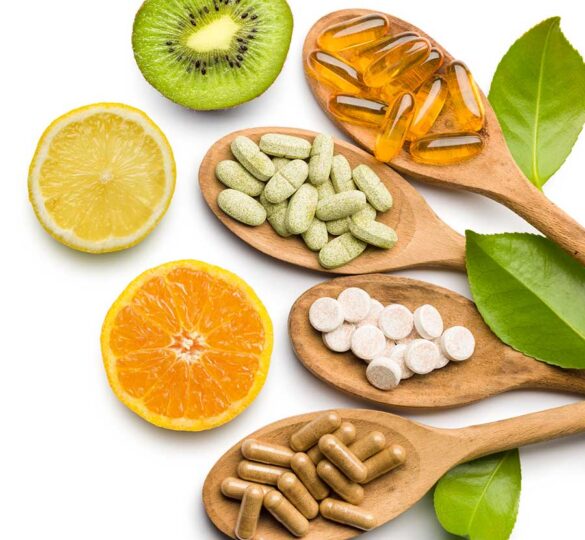Update on Alternative Glaucoma Medications
In research studies, vitamins have had little or no effect as a glaucoma treatment.

Use of alternative therapies is increasing. A simple definition: non-standard, unconventional therapy for treating glaucoma. In the US, use of alternative medicine has increased 10 to 15 percent in the past twenty years.
In fact, 72 million adult Americans spend an estimated $27 billion a year on alternative medications. Reportedly, some 50 percent of glaucoma patients use some form of alternative therapy.
The following summary is derived from an extensive review of the literature and studies, with personal experience of this author. The results seem rather negative. It’s important to remember that aspirin is derived from the willow tree, and pilocarpine – the first used drug for glaucoma – was a plant extract. A part of this report is to encourage needed research in this area.
Vitamins
Vitamin A is an antioxidant. Studies have shown it has no effect on intraocular pressure (IOP) or visual field.
Vitamin B1, or Thiamin, also reportedly has no effect on IOP or visual field. Vitamin B12 improved visual field in one 9-month study, but scientists consider the study inadequate.
Vitamin C, or ascorbic acid, is found in the aqueous humor that fills the front of the eye. To effectively reduce IOP, massive doses of vitamin C are required, making it impractical due to related complications (diarrhea and dehydration). Topical uses have shown little effect.
Vitamin E is an antioxidant, but studies thus far have shown no effect on IOP or visual field.
Marijuana
There are 400 different chemicals in marijuana, some of which may be damaging. Moderately long-term studies have shown that cannabis has no proven effect on glaucoma.
When ingested, marijuana does produce a 20 percent decrease in intraocular pressure; however, the decrease in pressure is only for a short period of time. In order to be effective as a medication, it would need to be taken many times a day.
Side effects of this would be loss of concentration and coordination, and risk of emphysema and lung cancer.
Topical use has shown no effect in studies to date, but cannabis derivatives are currently being studied in laboratory tests to determine if they may be effective.
Much more work is needed to determine if cannabis derivatives will have a proven effect in glaucoma treatment.
Herbal Remedies
Ginkgo biloba is an antioxidant. In one study of patients with chronic open-angle glaucoma, it was reported that ginkgo “appears to improve visual fields in some.” However, this study was criticized as poorly controlled. More long-term studies need to be conducted to determine if ginkgo has any proven effect on visual field. Ginkgo biloba increases ocular blood flow and may provide a neuroprotective effect.
Bilberry is supposed to promote optic nerve health, but there is no evidence to support this claim.
Diet
Drinking large quantities of water within a short period of time (one quart within 5 minutes) may increase intraocular pressure and may have a negative effect.
A person’s weight does not affect IOP.
Meditation
Long-term practice of meditation may help reduce IOP, but the reduction would not be significant.
Acupuncture
Many studies have been done, and in most cases there were no changes in IOP or visual field, except for one report indicating a minor change in visual field.
Exercise
Moderate exercise over time can result in a lowering of IOP that can last several months. In addition to helping lower pressure, exercise helps the brain, the heart, and the cardiovascular system. We encourage patients to exercise appropriately.
Last reviewed on April 19, 2022